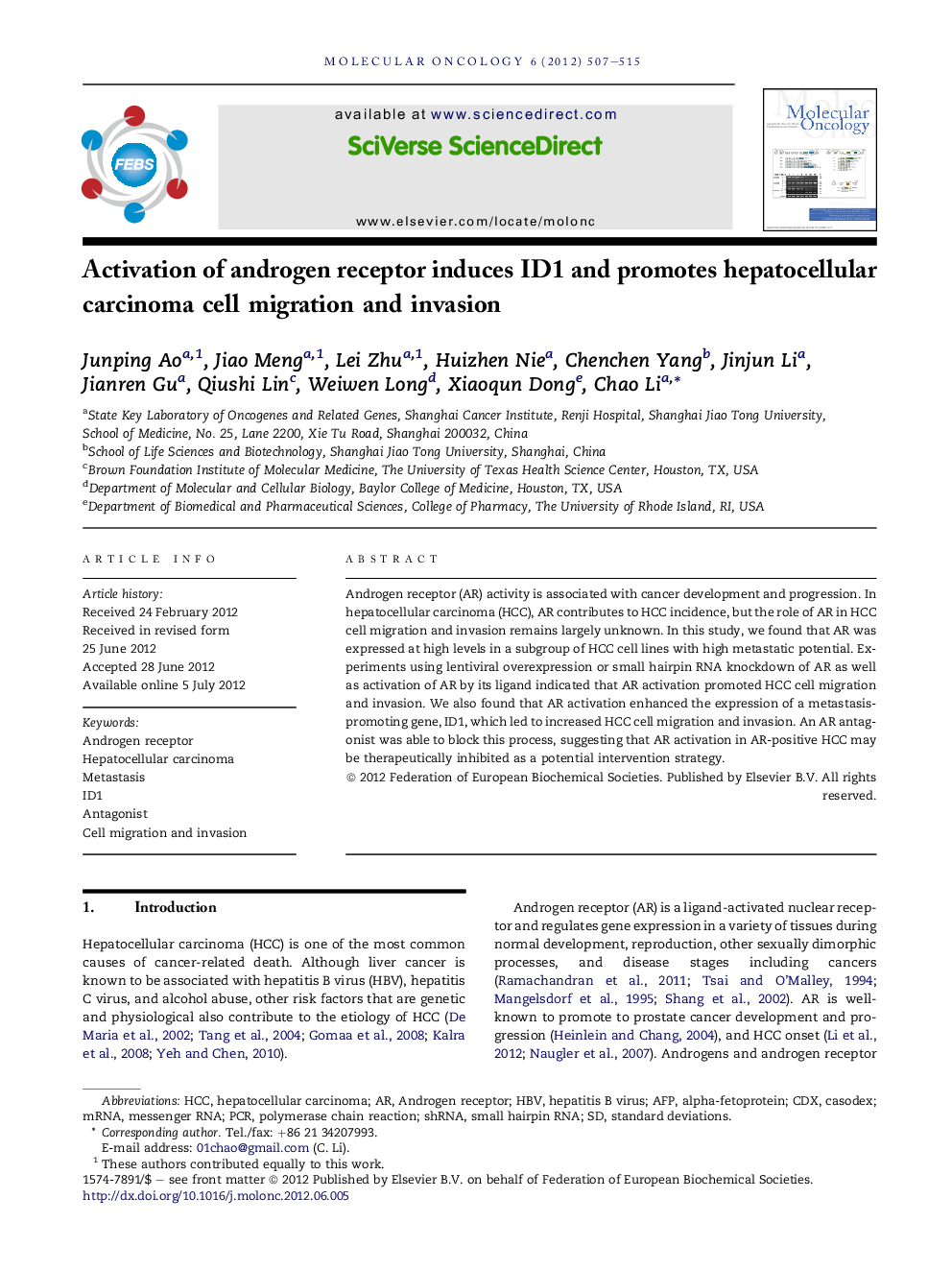| Article ID | Journal | Published Year | Pages | File Type |
|---|---|---|---|---|
| 2145832 | Molecular Oncology | 2012 | 9 Pages |
Androgen receptor (AR) activity is associated with cancer development and progression. In hepatocellular carcinoma (HCC), AR contributes to HCC incidence, but the role of AR in HCC cell migration and invasion remains largely unknown. In this study, we found that AR was expressed at high levels in a subgroup of HCC cell lines with high metastatic potential. Experiments using lentiviral overexpression or small hairpin RNA knockdown of AR as well as activation of AR by its ligand indicated that AR activation promoted HCC cell migration and invasion. We also found that AR activation enhanced the expression of a metastasis-promoting gene, ID1, which led to increased HCC cell migration and invasion. An AR antagonist was able to block this process, suggesting that AR activation in AR-positive HCC may be therapeutically inhibited as a potential intervention strategy.
► AR was expressed at high levels in a subgroup of HCC cell lines with high metastatic potential. ► AR activation promoted HCC cell migration and invasion. ► AR activation induced a metastasis-promoting gene ID1. ► AR-activation-promoted HCC cell migration and invasion was ID1-dependent. ► AR antagonist was able to block AR-activation-promoted HCC cell migration and invasion.
